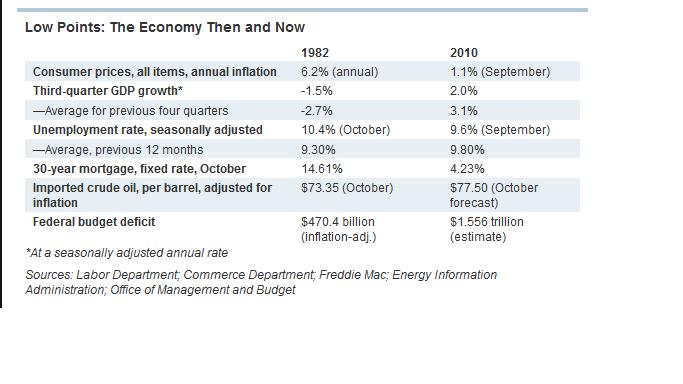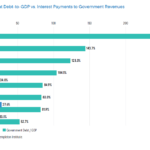The mid-term elections are finally over. According to the latest news, the Republican party has seized the House of Representatives winning at least 60 seats from the Democrats. This is a major blow to Obama and his democratic party. Republicans primarily won because of voters’ unease on the current state of the U.S. economy.
From the BBC:
“Up for election were all 435 seats in the House (the lower chamber of Congress), 37 of the 100 seats in the Senate, governorships of 37 of the 50 states and all but four state legislatures.
With some counts still to be completed, projections suggested the Republicans had obtained a net gain of 60 seats in the House, more than the 54 they won in the landmark 1994 mid-terms, and the biggest exchange of seats since the Democrats won 75 in 1948.”
In the swing state of Ohio, Republican John Kasich defeated the current governor Ted Strickland. Despite the major setback the Democratic party still retains control of the Senate.
Gerald Seib had an interesting piece titled “Lessons of Reagan’s Rebound“ in The Wall Street Journal yesterday analyzing the impact of economic growth that brought Reagan back from a difficult situation and how the lessons democrats can learn from that time.AÂ graphic comparing the current economy to the one during Reagan’s time is shown below:
Source: The Wall Street Journal
From the Journal article:
“By 1984, the darkness of the 1982 economy had turned into the “Morning in America” theme on which Mr. Reagan ran for re-election.
Some Democrats think that, in a similar way, political recovery for their party requires an intense focus on economic growth.
“My view is that when you have an election like this, even when Democrats manage to squeeze by, you have to really take stock of yourself and question your long-term relevance if you don’t change,” says Jim Kessler, vice president for policy at Third Way, a think tank that advances the ideas of moderate Democrats. “Democrats have to transition from being an economic-security party to an economic-growth party.”
Mr. Kessler argues that “the 80-year mission to fashion a strong safety net is basically over with the passage of health care, and a new mission must take its place. And that mission has to be growth.”
Most of the voters believe that current administration has wasted the past two years from implementing policies that would have put the economy back on track. Right from the beginning the economic team put together by the President has been incompetent. The team consisted of academic people such as Christina Romer who are best in academic teaching of economic theories but do not have much understanding of practical approaches to solving economic problems. Christina Romer, the chair of the White House Council of Economic Advisers, resigned her post in in September to return to her old job as an economics professor at the University of California at Berkeley. Budget director Peter Orszag also left the team.
Larry Summer, the head of the National Economic Council and a chief architect of failed economic policy also resigned in September.He plans to return to return to teaching at Harvard University by the end of the year.
Many believe that the resignations of the advisers mentioned above is actually good for the country and that it is high time that Mr.Obama completely reshuffles the team and fills it with better candidates. While it is a long shot there is a still chance for the current administration to fix the economic issues such as high unemployment and stimulate growth.If Mr.Obama can accomplish this in the remaining time of his presidency by convincing Americans that the Democratic party favors economic-growth, them they may re-elect him for a second-term in office.




